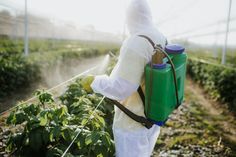
Pesticides and Food
Pesticides and food is a complex and often controversial topic that intersects issues of agriculture, public health, environmental science, and economics. Understanding the relationship between pesticides and our food supply is crucial for making informed decisions about what we eat and how we produce it.
Pesticides are substances used to control pests, including insects, weeds, fungi, and rodents that can damage crops. They play a significant role in modern agriculture, helping to increase crop yields and ensure a stable food supply for the growing global population. However, their use also raises concerns about potential health risks and environmental impacts.
The use of pesticides in food production offers several benefits:
- Increased crop yields: Pesticides protect crops from damage, leading to higher productivity.
- Food security: By reducing crop losses, pesticides help ensure a more stable food supply.
- Economic benefits: Higher yields can lead to lower food prices and improved farmer incomes.
- Disease control: Some pesticides help control vectors of human diseases, like mosquitoes.
However, the use of pesticides also presents challenges and concerns:
- Health risks: Exposure to certain pesticides has been linked to various health issues, including cancer, reproductive problems, and neurological disorders.
- Environmental impact: Pesticides can harm beneficial insects, contaminate water sources, and disrupt ecosystems.
- Pesticide resistance: Overuse of pesticides can lead to the development of resistant pests, requiring stronger or new chemicals.
- Residues in food: Pesticide residues can remain on or in food products, raising concerns about long-term consumption effects.
To address these concerns, many countries have implemented regulations on pesticide use and established maximum residue limits (MRLs) for pesticides in food.




